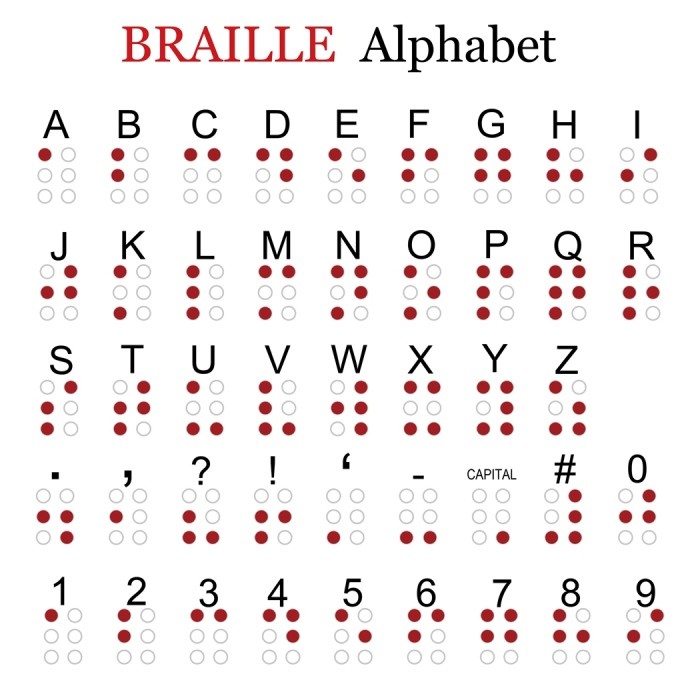Celebrating Braille Literacy Month: Honoring the Legacy of Louis Braille! Every January, we celebrate Braille Literacy Month, a time dedicated to recognizing the importance of braille as a vital tool for the visually impaired. This month also honors the life and legacy of Louis Braille, the brilliant inventor who transformed the world for blind and visually impaired individuals.
The Genius of Louis Braille
Louis Braille was born on January 4, 1809, in a small town near Paris, France. At the age of three, a tragic accident with a leather awl in his father’s workshop left him blind. Despite this life-altering event, Louis showed exceptional resilience and intelligence. At ten, he earned a scholarship to the Royal Institute for Blind Youth in Paris, where he would create a system that changed countless lives.
The Invention of Braille
While at the Royal Institute, Louis learned about a tactile military code developed by Charles Barbier. This code was intended for soldiers to read messages in the dark, but it was complex and impractical. Inspired by Barbier’s idea, Louis began working on a simpler and more efficient system of raised dots.
By the age of 15, Louis had developed the braille system we know today. His system used a cell of six dots, arranged in a 3×2 grid, allowing for 64 possible combinations. Each combination represents a letter, number, punctuation mark, or even a musical note. Braille’s system was revolutionary because it was easy to learn and versatile, providing blind individuals with the ability to read and write independently.
The Impact of Braille
Louis Braille’s invention opened up a world of possibilities for the visually impaired. For the first time, blind individuals could access literature, music, mathematics, and more. The braille system empowered them to pursue education, careers, and hobbies, contributing to a more inclusive society.
Braille literacy is crucial for the visually impaired, as it enhances their ability to communicate, learn, and engage with the world. It fosters independence and self-confidence, enabling individuals to lead fulfilling lives.
Celebrating Braille Literacy Month
Braille Literacy Month is a time to promote the importance of braille and to celebrate the achievements of those who use it. Here are some ways we can honor this month:
1. Raise Awareness: Share information about braille and its significance on social media, in schools, and within your community. Educate others about the challenges faced by the visually impaired and the ways braille can help overcome these obstacles.
2. Support Organizations: Donate to and/or volunteer with organizations that provide braille education and resources such as like Florida Division of Blind Services and Lighthouse Central Florida. These organizations play a vital role in ensuring that braille remains accessible to those who need it.
3. Learn Braille: Take the time to learn the basics of braille. Understanding this system can help you appreciate the challenges faced by the visually impaired and how they navigate the world.
4. Celebrate Achievements: Highlight the stories of individuals who have excelled thanks to braille. Celebrate their accomplishments and recognize the impact of braille on their lives.
5. Advocate for Accessibility: Advocate for policies and practices that promote accessibility and inclusion for the visually impaired. This includes ensuring that public spaces, educational institutions, and workplaces are equipped with braille resources.
Honoring Louis Braille
As we celebrate Braille Literacy Month, we honor the incredible legacy of Louis Braille. His determination and ingenuity have left an indelible mark on the world, providing hope and opportunity to millions. Louis Braille’s life is a testament to the power of perseverance and innovation in the face of adversity.
Conclusion
Braille Literacy Month is not just a time to reflect on the past but also to look forward to a future where Braille continues to empower and uplift the visually impaired. By spreading awareness, supporting braille education, and advocating for accessibility, we can ensure that Louis Braille’s legacy lives on, helping to create a world where everyone has the opportunity to read, learn, and thrive.
Top image used under CC0 Public Domain license. Image cropped and modified from original.
The content on this blog is not intended to be a substitute for professional medical advice, diagnosis, or treatment. Always seek the advice of qualified health providers with questions you may have regarding medical conditions.

